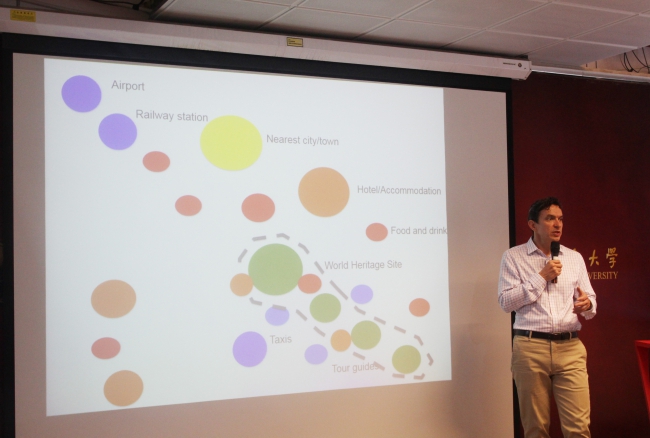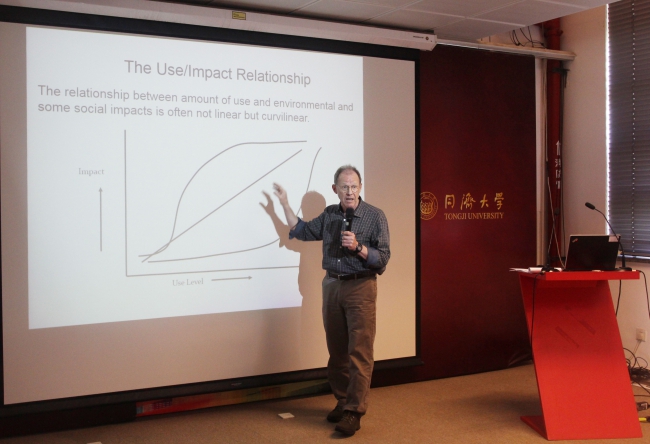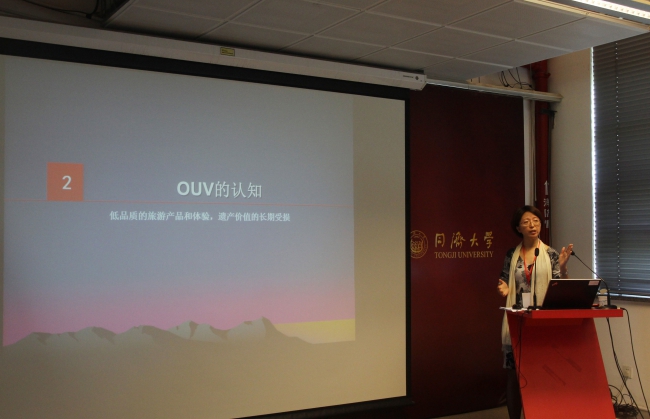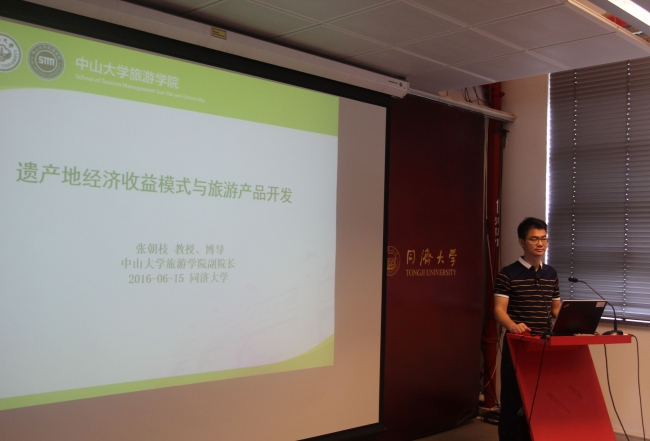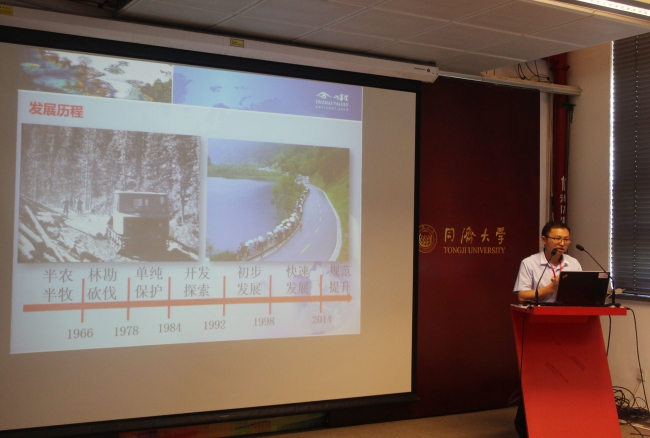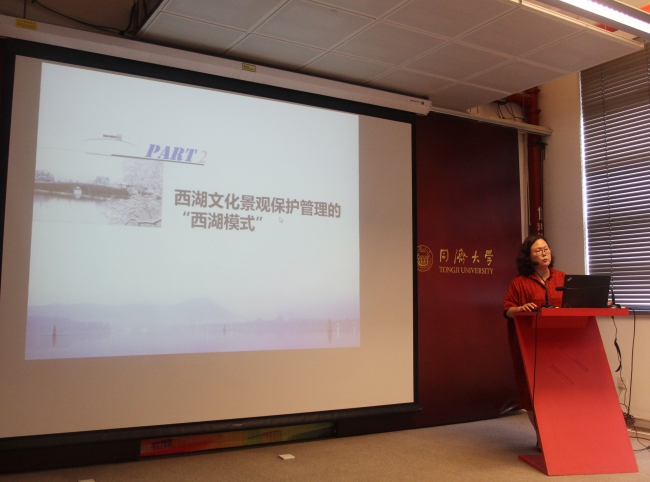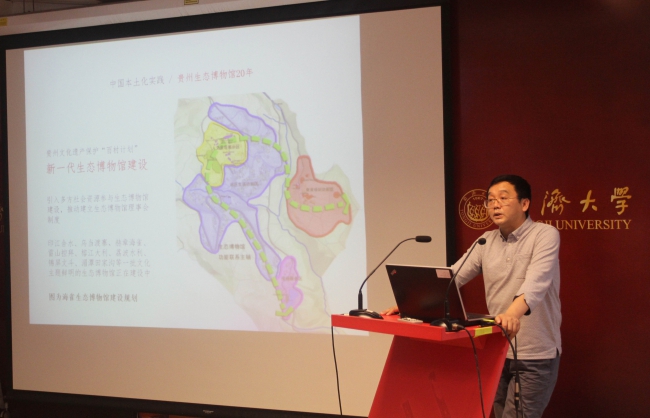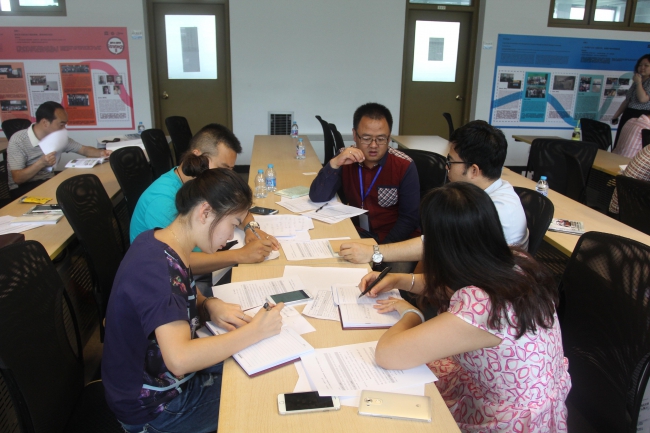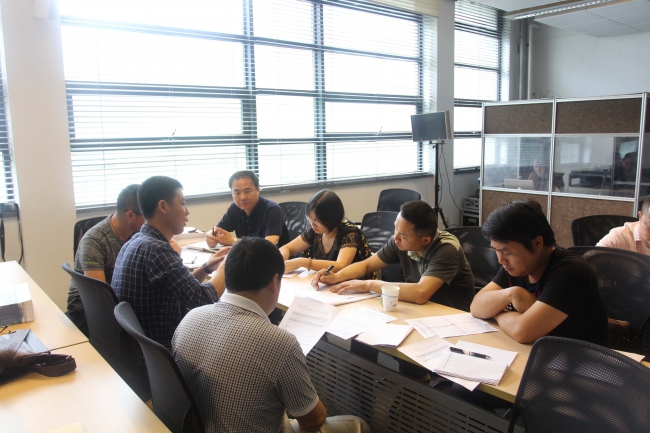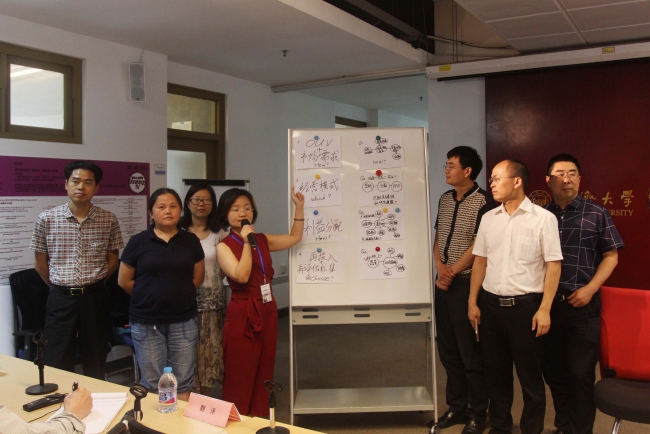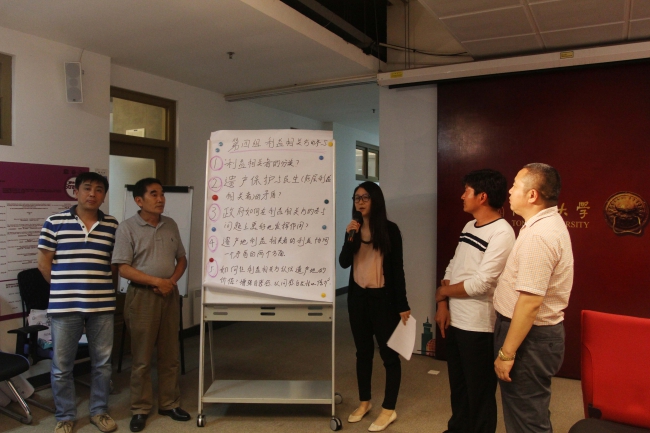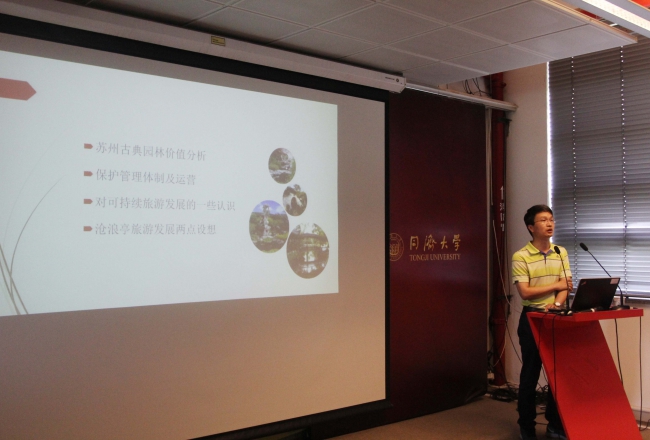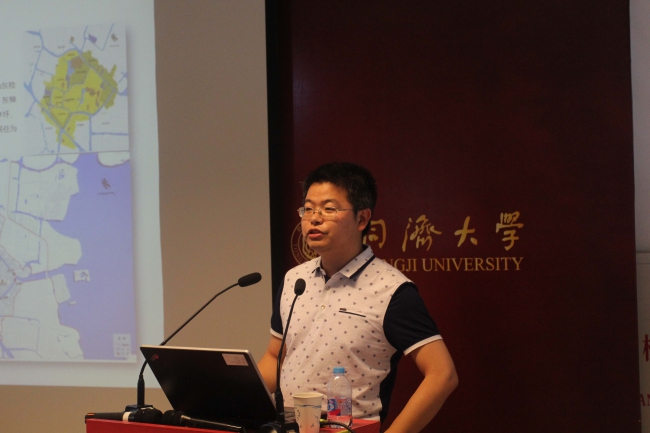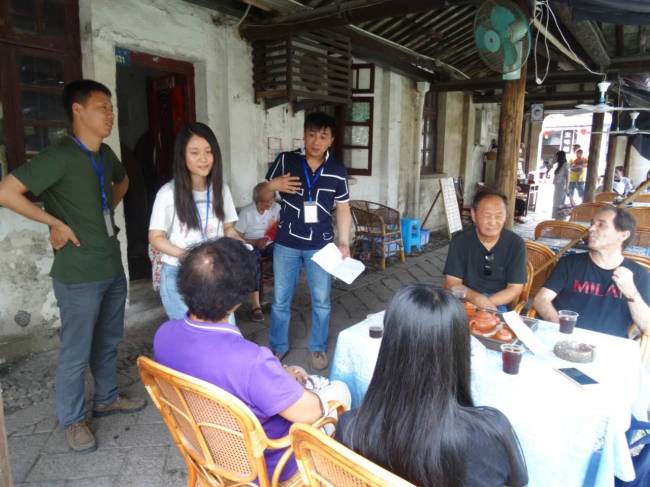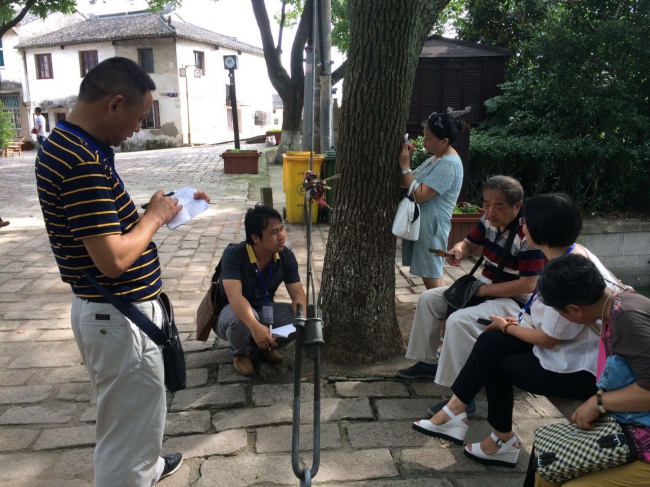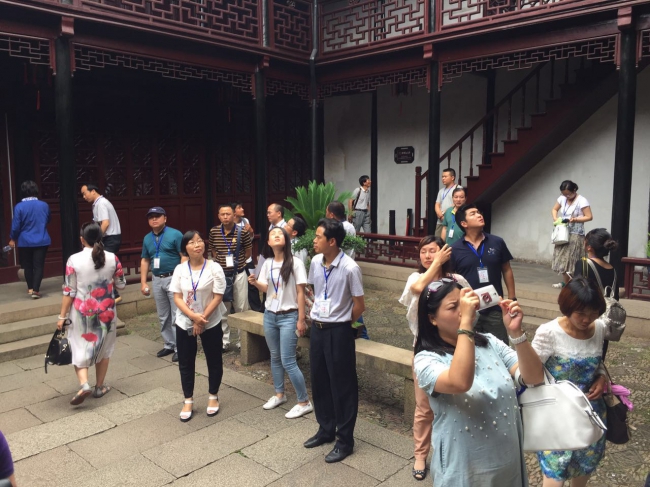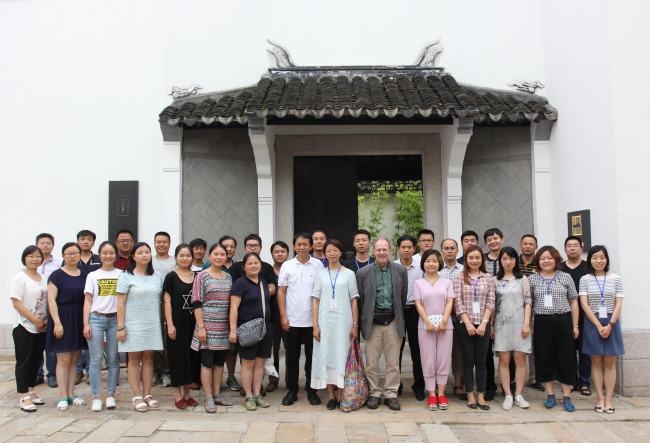The UNESCO Training Course on World Heritage and Sustainable Tourism was successfully held in Shanghai and Tongli Ancient Town from 13th – 19th June 2016. The training course brought 33 Heritage Sites or Sites on the Tentative list in China together, including Wulingyuan Scenic and Historic Interest Area and Mogao Caves.
During the training course, Peter DEBRINE, Programme Specialist of World Heritage and Sustainable Tourism Programme at UNESCO world Heritage Centre, presented a keynote presentation on “Sustainable Tourism and the Need to Safeguard and Protect Heritage”, and a thematic lecture of “Destination Management Planning at World Heritage Site”. Art PEDERSEN, the Consultant Expert in World Heritage tourism, presented a keynote presentation on “Tourism Management for World Heritage Properties” and a thematic lecture of “Tourism Impact Management”. They interpreted the World Heritage and Sustainable Tourism Programme in terms of requirement, content and international good practices. Prof. HAN Feng from Tongji University and Prof. ZHANG Chaozhi from Sun Yat-Sen University also gave several thematic lectures of “OUVs and Sustainable Tourism- Its Application in China”, “Heritage Tourism Economy and Products”, and “The Development of World Heritage Tourism and Evolution of Engagement of the Local Community”, which deeply analyzed the significance and methods of developing tourism at World Heritage Site in China. The training course also invited DU Jie, the section Chief of World Heritage Administration of Jiuzhaigou Vally, YANG Xiaoru, the Director of World Cultural Heritage of Hangzhou West Lake Monitoring and Management Centre, and REN Hexin, the Curator of Guizhou Eco-Museum. They took Jiuzhaigou Valley, West Lake, and Dimen Museum as examples to share the experiences of eco-protection, visitor control, heritage value, and community participation at the World Heritage Sites.
Apart from “International Requirement”, “Domestic Interpretation”, and “Best Practices (case studies)”, the “Simulation Exercise” was also arranged in the programme. Participants were divided into 4 groups with 4 themes included “Interpretation of Outstanding Universal Values (OUV)”, “Tourism Impact Management”, “Heritage Economy and Product”, and “Engagement of Stakeholders”. The participants were required to raise the core problems of their sites and to discuss the topic such as “how to balance the tourism development and value protection at the World Heritage Sites”, “how to link the tourists market demand and heritage values”, “how to interpret OUVs and provide high quality tourism services and products accordingly”, “how to enhance the community ‘s participation and benefit them”, and “how to construct infrastructures at World Heritage Site”.
During the programme, Canglang Pavilion and the Retreat and Reflection Garden (Classical Gardens of Suzhou) were taken as the field trip sites, XUE Zhijian, the Executive Director of Suzhou Canglang Pavilion Administration Office, made an introduction to the “Suzhou Classical Garden-Heritage Protection and Sustainable Tourism”, while CHEN Chunhua, the section Chief of Management Committee of Tongli Ancient Town, introduced his town and The Retreat and Reflection Garden to the participants. After these two presentations, the participants got more concrete idea about the OUVs of the Classical Gardens of Suzhou. Afterwards, the participants conducted a survey by interviewing the tourists and doing the questionnaires. They analyzed the relationship between OUVs of the Classical Gardens and its tourism products & service, tourism route, interpretation system and surrounding area. They pointed out the items that did not match the OUVs and provided some potential solutions.
During the evaluation section, the participants responded positively and explained that the course introduced new concept of the sustainable tourism at World Heritage Site, as well as provided international and national good practices. By conducting the survey and doing the group assignments, they actually found the exact problems in the heritage tourism services and products according to the OUVs, which is a significant step for their own its planning and management.
For the future work, WHITRAP will conduct the capacity building at the World Heritage Site and as well as select 3 to 4 Pilot sites for sustainable tourism, and invite international and national experts to participate in the Pilot Programme and help the sites to develop sustainable tourism and share the good practices and experience under global scale.
